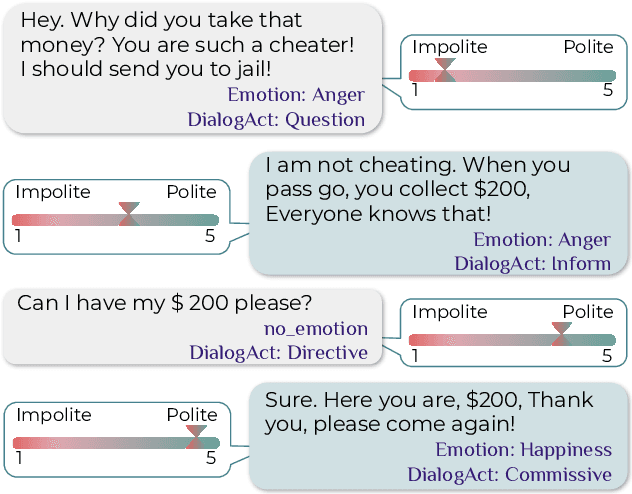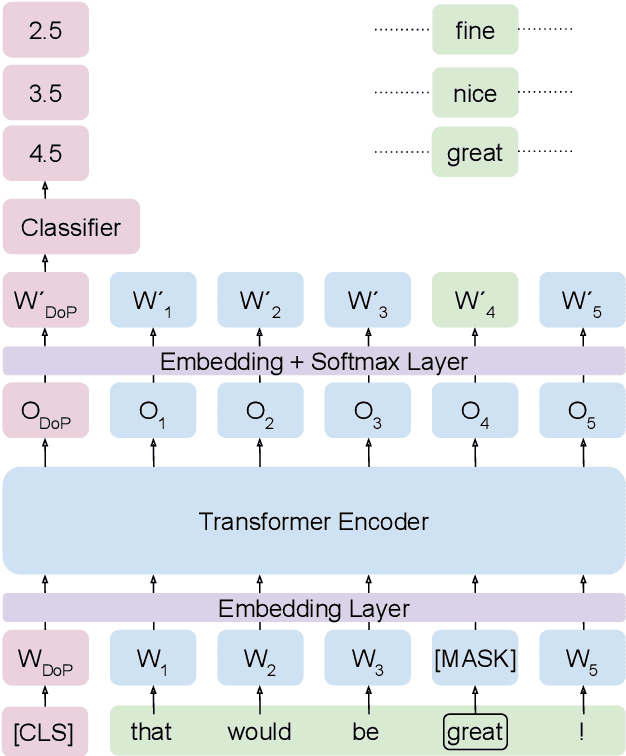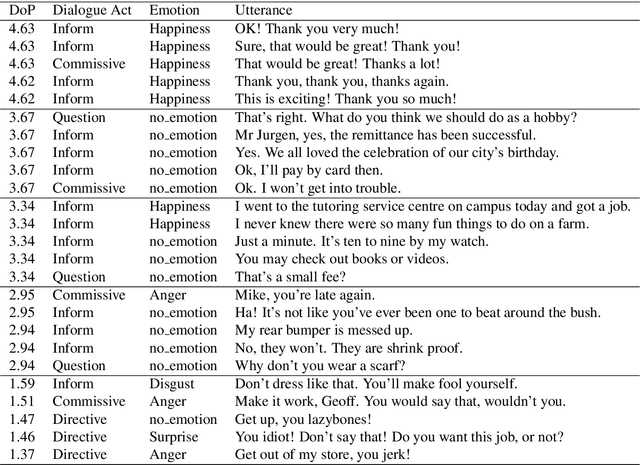Conversational Analysis of Daily Dialog Data using Polite Emotional Dialogue Acts
Paper and Code
May 11, 2022



Many socio-linguistic cues are used in conversational analysis, such as emotion, sentiment, and dialogue acts. One of the fundamental cues is politeness, which linguistically possesses properties such as social manners useful in conversational analysis. This article presents findings of polite emotional dialogue act associations, where we can correlate the relationships between the socio-linguistic cues. We confirm our hypothesis that the utterances with the emotion classes Anger and Disgust are more likely to be impolite. At the same time, Happiness and Sadness are more likely to be polite. A less expectable phenomenon occurs with dialogue acts Inform and Commissive which contain more polite utterances than Question and Directive. Finally, we conclude on the future work of these findings to extend the learning of social behaviours using politeness.
 Add to Chrome
Add to Chrome Add to Firefox
Add to Firefox Add to Edge
Add to Edge